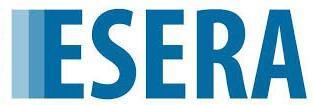ESERA VDN Plenary Details
**VDN Students Do Not Need to Register** - You will receive links to join each session automatically
External registration is now closed. Recordings will be posted here after the event.
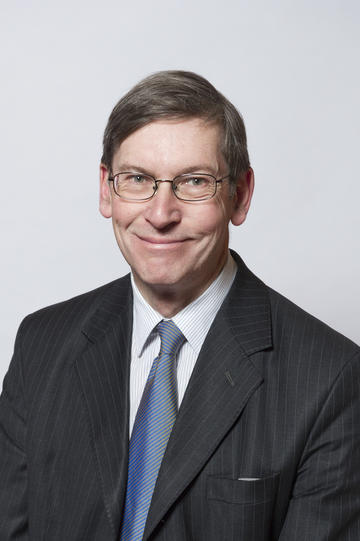
Title: What kind of reseaRecrcher do you want to be?
Time: 12:40 - 13:30 CET
Abstract: Books on research methods in education and other social sciences give lots of valuable advice about developing a methodology for one’s study and identifying suitable research methods that can be used to help answer your research questions. But there is, perhaps, a deeper question – and one that is less often considered. Namely, what sort of researcher do you want to be? To some extent this is simply about the nature of your methodology and methods – for instance, do you want to do a study that carefully observes what is going on in a setting or do you want to devise and implement an intervention and then examine the consequences of the intervention. But think about what sort of researcher you want to be (not necessarily yet are!). This might mean that you realise your fundamental interest is in facilitating learning, broadening access to science education, tackling inequalities or something else. This keynote will examine these issues. I hope that it will help you to clarify why you are undertaking research and how the work that you do can reflect your values and identity.
Speaker:
Michael J. Reiss is Professor of Science Education at UCL Institute of Education, University College London, a Fellow of the Academy of Social Sciences and Visiting Professor at the Universities of York and the Royal Veterinary College. The former Director of Education at the Royal Society, he is a member of the Nuffield Council on Bioethics and has written extensively about curricula, pedagogy and assessment in science education and has directed a very large number of research, evaluation and consultancy projects over the past twenty five years funded by UK Research Councils, Government Departments, charities and international agencies.
Recorded Plenary:
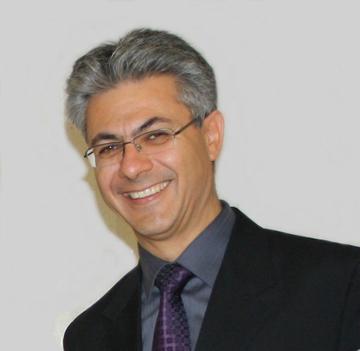
Title: Designing for relevance in science education research: examples from formative assessment
Time: 12:00-13:30 CET
Abstract: Formative assessment has received attention for many years as a mechanism for offering timely feedback to students, for enhancing their engagement and for refining the scaffolding of their efforts to
attain meaningful learning. Within inquiry-oriented science education, formative assessment presents renewed challenges in terms of what to assess, in what sequence, how to obtain reliable evidence and how to present it to students
in a respectful, supportive and effective manner. In this presentation, I will seek to explore one aspect of relevance in science education research: investigating strategies and evaluating tools for teaching and learning. I will
highlight specific approaches to formative assessment, including stimulated self-reflection, peer evaluation and structured classroom dialogue. I will provide illustrative examples of research on teachers’ use of classroom
evidence to guide and support learning. Finally, I will discuss implications for science education research, for teacher preparation and for classroom teaching practice.
Speaker:
C. P. Constantinou is a Professor in Science Education and Director of the Learning in Science Group at the University of Cyprus. He has published extensively on curriculum design, research-validation of teaching-learning innovations,
assessment for learning and the development of transversal competencies such as modeling, investigation, argumentation and creativity. He has a PhD in Physics from the University of Cambridge and has worked at Washington State
University and the University of Washington. He is a member of the editorial boards of the Educational Research Review and the journal Learning, Culture and Social Interaction. He is serving as a reviewer in several international
research journals including Learning and Instruction, Instructional Science, the International Journal of Science Education and the Journal of Research in Science Teaching. He has been active in international educational research
over a period of more than 25 years with research interests that focus on the learning and teaching of science as a process of inquiry and the use of educational technologies as a tool for promoting critical evidence-based thinking.
The Learning in Science Group uses the results of this research in the development of online learning environments and research-based teaching-learning sequences to promote conceptual understanding, evidence-informed reasoning
and scientific thinking. Dr. Constantinou has co-ordinated a number of projects funded by the European Commission and the Cyprus Research Promotion Foundation. He has participated in the High Level Expert Groups that authored the
reports Science Education for Responsible Citizenship in 2015 and Europe needs more Scientists! in 2004. He has served as President of the European Science Education Research Association (www.esera.org)
and as Chairperson of the Executive Committee of the European Association for Research on Learning and Instruction (www.earli.org).
Some of his work is accessible at https://www.researchgate.net/profile/Costas_Constantinou2 and at https://ucy.academia.edu/CostasConstantinou
He can be contacted at c.p.constantinou@ucy.ac.cy
Recorded Plenary
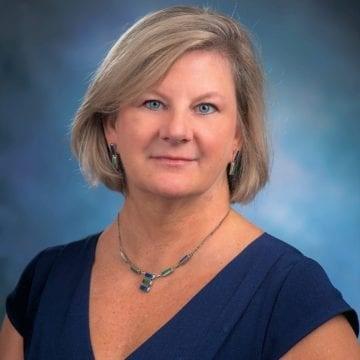
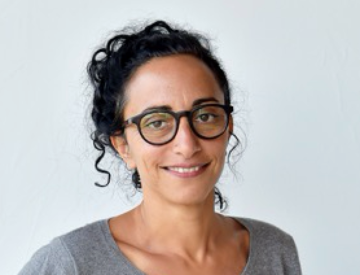
Title: New directions in understanding relationships among science learning experiences, science identity and understandings of the nature of science
Time: 12:00-13:30 CET
Abstract: Situated within global socioscientific challenges (e.g., public health, climate change, inequality, poverty) we aim at engaging the audience with questions associated with the role of science education research in promoting goals related to equity and social justice. In doing so, we will first provide a brief overview of the existing knowledge base around science learning experiences, science identity, and understandings of the nature of science. Following on that, and drawing on our experiences as researchers, we will highlight opportunities and challenges of being cognizant of one’s positionality. We will reflect on the ways in which place(s) and the unique sociopolitical realities attached to specific research contexts might position researchers as insiders/outsiders in studying issues related to science learning experiences, science identity, and understandings of the nature of science. We will engage with questions such as: What is our responsibility as researchers, and to whom should our responsibility be? How do our lives intersect (or not) with the lives of the participants and how do those intersections impact the research process and outcomes? In engaging with these questions we will offer concrete examples from our own research studies in the areas of science identity and the nature of science and we will reflect on the affordances and limitations of specific research approaches, theoretical frameworks and methodologies. We will conclude by gazing forward and exploring new directions in understanding relationships among science learning experiences, science identity, and understandings of the nature of science for the purpose of addressing goals related to equity and social justice in science education research.
Speakers:
Renee Schwartz is a professor of science education in the Department of Middle and Secondary Education, Georgia State University. Her research focuses on the study of epistemological views of science, specifically views of the nature of science (NOS) and the nature of scientific inquiry (NOSI). Through primarily qualitative methods, she examines preservice and practicing science teachers’ developing conceptions of NOS and NOSI in various contexts — including authentic science research experiences and classroom-based science learning — to identify effective means of fostering conceptual and pedagogical knowledge.
Lucy Avraamidou is an associate professor of science education at the Institute of Science Education and Communication, University of Groningen, NL. Her research is associated with theoretical and empirical explorations of what it means to widen and diversify STEM participation in school and out-of-school settings through the lens of intersectionality. At the heart of the account of her work is an exploration of minoritized individuals' identity trajectories with the use of narrative and life-history methods.

